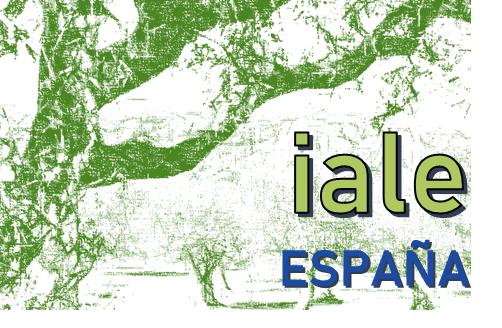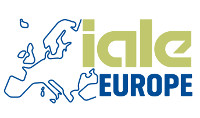
During the IV Iberian Conference of Landscape Ecology, which took place in Faro (University of Algarve, Portugal) on November 8 and 9, 2018, the attending members of the Spanish Association of Landscape Ecology (AEEP, IALE Spain) shared and agreed on some ideas about the future of the Spanish Association.
The Spanish chapter is definitely in a new situation: only this year it has been recognized by IALE International, it has updated the inscription in the official registry of associations in Spain and has recently launched its website. This new status allows us to think about the further establishment of the association.
We realise that the occasion of the ‘chapter in the spotlight’ is favourable and of strategic interest for several reasons.
First, the postulates and style of IALE favour a useful exchange between the scales of analysis of the Landscape Ecology. According to the theme of the European Landscape Ecology congress organised by IALE-Europe in 2017 (Ghent, Belgium), landscape ecology embraces on the one hand patterns and processes on wide scales (territory, ordered and functional landscape, etc.) and on the other people and their performances (people and actions), including topics such as human perception (the humans being both a judge and party of the landscape, Landscape Ecology as the human scale of Ecology). These issues are elements of a multiscale dialogue, which can be regarded to be specific to IALE and Landscape Ecology.
Second, Landscape Ecology and in particular IALE should become a meeting place of different approaches and schools interested in this plural and open (non-dogmatic) understanding of the landscape, in order to share perspectives that help to understand, characterize and manage the landscapes. This requires the multiple application of knowledge. To achieve this, we consider it is important to encourage the collaboration - within the Spanish Chapter - of geographers, architects, ecologists, anthropologists, of all those interested in planning, biogeography, in the biophysical, ecological and human processes that shape the landscape and sustain ecosystem services.
The current situation of a lack of definition and neglecting landscape policies in Spain (with some exceptions of the autonomous communities that have advanced landscape laws, with different application) demands an effort of research, debate, opinion and proposals allowing exchanging the knowledge and ideas from the involved technical and scientific collectives to the society and policy makers. This requires the multiple application of landscape ecological knowledge.
The originality and variety of the Iberian landscapes, with some examples that we can consider as endemic, should be an occasion and a commitment to transfer the importance of its management and conservation to society, maintaining or renewing the uses that make them viable.
The increase of urban-industrial areas in parallel to the rural abandonment in most of the territory are emptying and banalizing landscapes with a strong cultural significance and conditioning the options for a development more consistent with the heritage conservation. The latter is an approach that is clearly adopted by some other countries in Europe.
As first measures to advance in the enhancing of IALE Spain, the Spanish participants to the Faro meeting proposed the following:
- AEEP must be able to transmit its usefulness and to identify the added values or differential features that make it interesting for the new members. What teaches you or what is learned in AEEP. In addition to the effort of communication and dissemination through the website, it is proposed to organize specialized courses for members who want to complete their training. For example, techniques on territorial image, remote sensing, integration and representation of data.
- Review and update the working groups, which should be open to or organised jointly with the partners of APEP (Portugal) and other European countries. It will be important to identify the strategic issues of highest interest and promote and activate attractive working groups.
- AEEP must be open to non-academic groups and partners. This means promoting the association to companies, NGOs, local managers, municipal entities, cooperatives, consultant, urban planners, etc. And also involving the young members in the promotion of IALE Spain. They must take over in initiatives to implement and disseminate the activities of the Association.
- AEEP must be proactive, go out to disseminate its goals, be known in a broader context. Therefore the website will be used, including instruments and a communication and dissemination plan. This will include a support platform for bibliographic, technical and professional services for private users, companies, NGOs and administrative agencies.
- AEEP must be a platform of support and services to the society. Application of knowledge of Landscape Ecology to solve environmental problems and advise on the management of resources and territories should be communicated. It is essential to report on what is meant by Landscape Ecology, what it covers, for example, importance in the resolution of environmental problems, the management of the territory and the conservation of cultural heritage. All the above must be well defined (published) on the website and via means of dissemination.
- AEEP propose a framework to advance in conceptual issues and approaches on the landscape, information on new ideas, key concepts, techniques, or the connection with the new paradigms related to resources and development, favouring a continuous debate about them.
- Finally, we further collaborate as a regional section of IALE-Europe that brings together APEP and AEEP (Iberian IALE chapters, IALE-IB) with the creation of transnational working groups and joint projects.
The commitment to promote these ideas can be considered as a presentation of the Spanish Chapter of IALE, open to contributions and dialogue with the rest of Europe's colleagues and associations.
On behalf of the AEEP board and those attending the Iberian meeting in Faro.
Antonio Gómez Sal
President of the Spanish Chapter
[National chapter in the spotlight - Autumn 2018]

